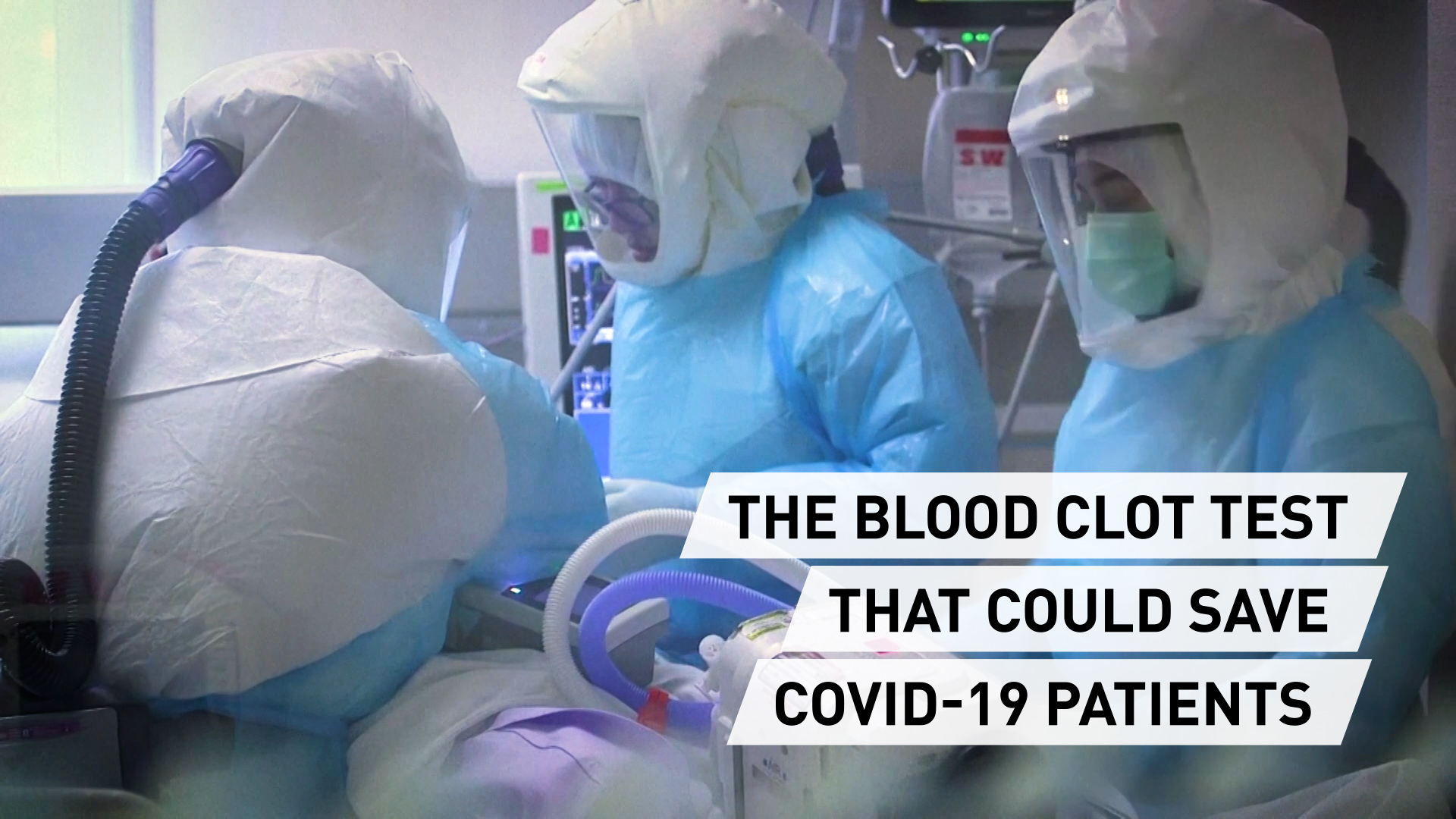05:48

COVID-19 causes many complications in the human body and triggers severe inflammation in the lungs and blood vessels.
The coronavirus causes blood to become stickier and immobilized patients in critical care have an even higher risk of developing blood clots, known as thrombosis. Between 30 and 50 percent of COVID-19 patients in intensive care are also at a high risk of a potentially fatal pulmonary embolism, caused by a blockage of an artery in the lungs by a blood clot that has come from elsewhere in the body.
However, since a report for the Dutch Ministry of Public Health, hospitals in Rotterdam have reduced blood clotting complications by half by testing for a protein fragment called D-dimer, which is generated when a blood clot dissolves.
RAZOR's Emma Keeling spoke to Edwin van Beek from the University of Edinburgh, who co-authored a report on the blood clotting effects of COVID-19.
"If you have these high levels of D-dimer, it's a prediction of people dying. If you have low levels of D-dimer, there's a prediction you're going to survive. It's a massively important test in that respect," Van Beek told CGTN Europe.

Scientists are studying whether testing for D-dimer, a protein found in dissolving blood clots, could help save COVID-19 patients in intensive care. /Mauro Pimentel/AFP
Scientists are studying whether testing for D-dimer, a protein found in dissolving blood clots, could help save COVID-19 patients in intensive care. /Mauro Pimentel/AFP
Van Beek studied 45 intensive-care patients, with 35 recording high D-dimer levels, all had a pulmonary embolism when tested. None of the 10 with low levels of D-dimer had a pulmonary embolism.
"This is a direct discriminator of what's going on," he said.
"If you have low levels of D-dimer, you should just have normal prophylactic anticoagulant treatment with things called heparin-type drugs. Interestingly, in Germany, they've always had higher prophylactic doses and they have the best outcomes in terms of intensive-care treatment. That's suggested this may be working."
Van Beek added that the D-dimer test has made a big difference to the 50 percent death rate for patients admitted to intensive care with the coronavirus, which is higher than average.
"We've seen that the mortality rate has now normalized in an intensive-care situation," he said. "People still die, unfortunately, but the situation has dramatically improved because we can adequately treat the pulmonary embolism."
Check out The Pandemic Playbook, CGTN Europe's major investigation into the lessons learned from COVID-19